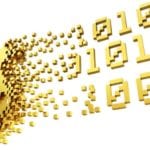Chinese researchers at Shanghai University have reportedly used a D-Wave Advantage quantum computer to crack RSA encryption, a widely-used encryption method. This breakthrough, which may also impact AES encryption, could have significant implications for digital security, as RSA is commonly deployed in web browsers, VPNs, and other communication platforms.

Unlike traditional computers, which process information using bits that represent either a 0 or a 1, quantum computers use qubits that can represent both 0 and 1 simultaneously, thanks to a property called superposition. This allows quantum computers to explore multiple solutions at once and solve certain types of complex problems exponentially faster than classical computers.
This capability makes quantum computers particularly suited to tasks like factoring large numbers, a process that underpins much of today’s encryption—enabling them to potentially break encryption codes that would be impractical to crack with traditional computing alone.
The researchers used a combination of quantum and classical algorithms to achieve a 50-bit RSA integer decomposition, demonstrating a quantum computer’s potential to break encryption methods previously thought secure.
RSA encryption relies on the difficulty of factoring large numbers into their prime components—a process that is relatively simple in one direction (multiplication) but extremely challenging in the reverse (factoring) without the key. Traditional computers struggle with this problem as the numbers grow, which is why RSA keys are usually very large, often 2048 bits or more.
While a 50-bit number is far smaller than those used in real-world encryption, this accomplishment demonstrates a proof of concept for quantum computers’ potential to tackle such problems.
Quantum computers have long been regarded as ineffective for such tasks, but this development challenges that assumption. The Global Risk Institute has warned that within the next 30 years, quantum technology might be able to crack RSA-2048 encryption in under 24 hours. In response to these risks, tech companies like Apple have begun developing quantum-resistant encryption protocols, such as the PQ3 protocol for iMessage.
The Shanghai researchers’ success could have significant implications for biometric security. Biometric systems rely on encryption algorithms like RSA and AES to protect sensitive data – such as fingerprints, facial recognition profiles, and iris scans – during storage and transmission. If quantum computers can effectively crack these encryption methods, as the Chinese researchers suggest, it could potentially expose biometric data to unauthorized access and exploitation.
The ability of quantum computers to break current encryption standards means that the biometric data protected by these algorithms could be at risk. This highlights the urgent need for quantum-resistant encryption techniques to ensure that biometric security systems remain robust against emerging quantum threats. Organizations may need to adopt new cryptographic methods and update their security infrastructures to safeguard biometric information in the quantum computing era.
Source: Bitdefender
–
October 17, 2024 – by Cass Kennedy and Alex Perala







Follow Us